The Diversity of the Peach: Much More Than a Sweet Fruit
The peach (Prunus persica) is one of the most iconic summer fruits, but its story goes beyond its soft skin and sweet taste. This fruit, native to China, has traveled the world and evolved into various varieties, each with unique characteristics that make it special. Knowing the different types of peaches is not only a delight for the palate but also an immersion into the science behind its cultivation. Join me in discovering the peach varieties you can’t miss, from the most common to the most exotic, and learn why each one is unique.
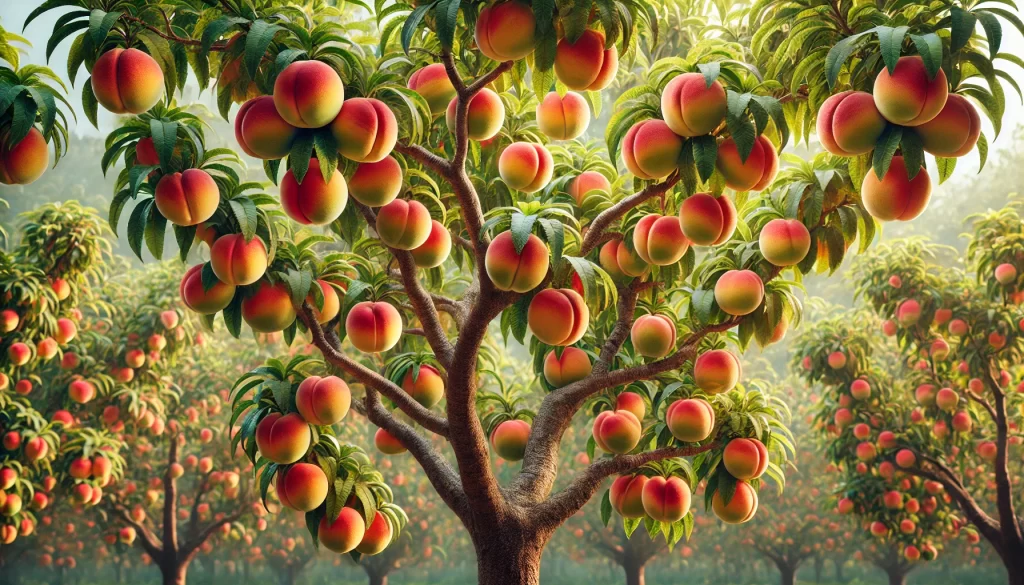
The Classic Reinterpreted: Yellow-Flesh Peach
Characteristics and the Science Behind the Flavor
The yellow-flesh peach is perhaps the most recognizable and widely consumed variety. This type of peach is distinguished by its balance of sweetness and acidity, making it a favorite for both fresh consumption and culinary use. The firmness of its flesh, due to its compact cellular structure and adequate pectin content, makes it ideal for preparations like pies and preserves. The carotenoid pigments responsible for the yellow color are also powerful antioxidants, making this peach not only delicious but also beneficial for health.
Ideal for:
- Baked desserts
- Preserves and jams
- Fresh consumption
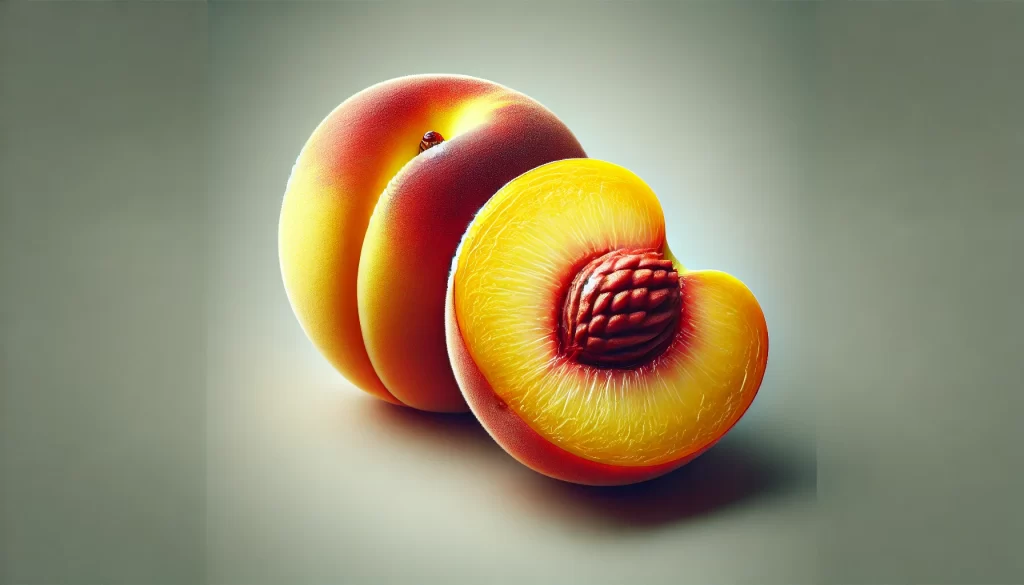
Sweetness Made Art: White-Flesh Peach
Delicacy on the Palate and the Science of Aroma
The white-flesh peach is known for its more delicate flavor and lower acidity compared to its yellow counterpart. The lower acidity of this variety is due to the reduced presence of malic and citric acids, allowing the fruit’s natural sweetness to shine. Additionally, this peach is rich in volatile compounds that contribute to its floral aroma, making it especially pleasant for fresh consumption. The flesh is soft and juicy, requiring careful handling during harvest and transportation to avoid damage.
Ideal for:
- Fruit salads
- Fresh consumption
- No-bake desserts
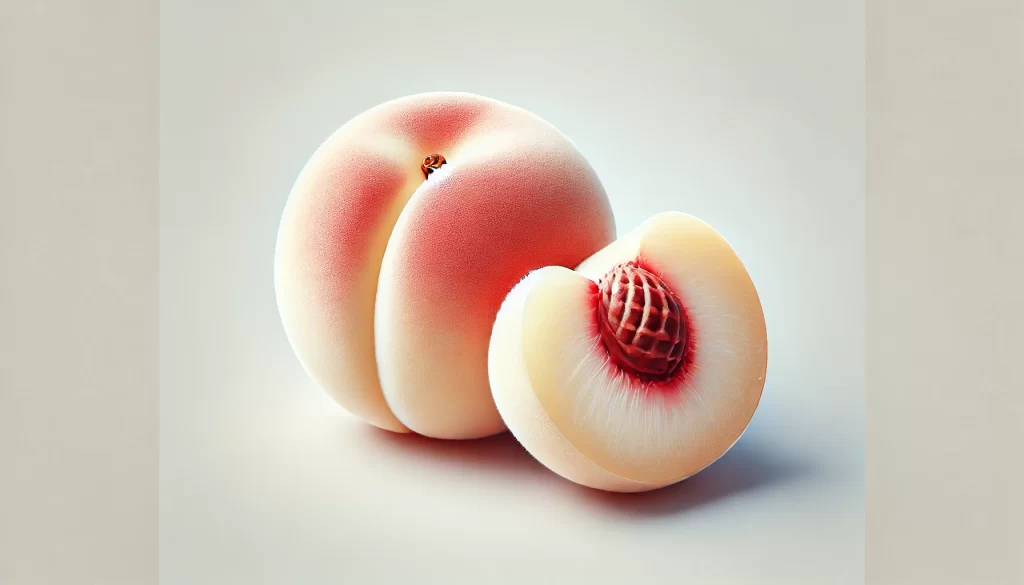
Clingstone Peach: The Firmness of Tradition
The Science of Preservation in a Peach
The clingstone peach, also known as pavía peach, is characterized by its firm flesh and attached stone, making it perfect for canning and cooking. The firmness of its flesh is due to a higher concentration of calcium in the cell walls, which maintains its structure during cooking. Although less sweet in its natural state, this peach acquires an intense texture and flavor when cooked, making it an ideal ingredient for pies, jams, and other baked desserts.
Ideal for:
- Preserves and jams
- Cooked dishes
- Pies and pastries
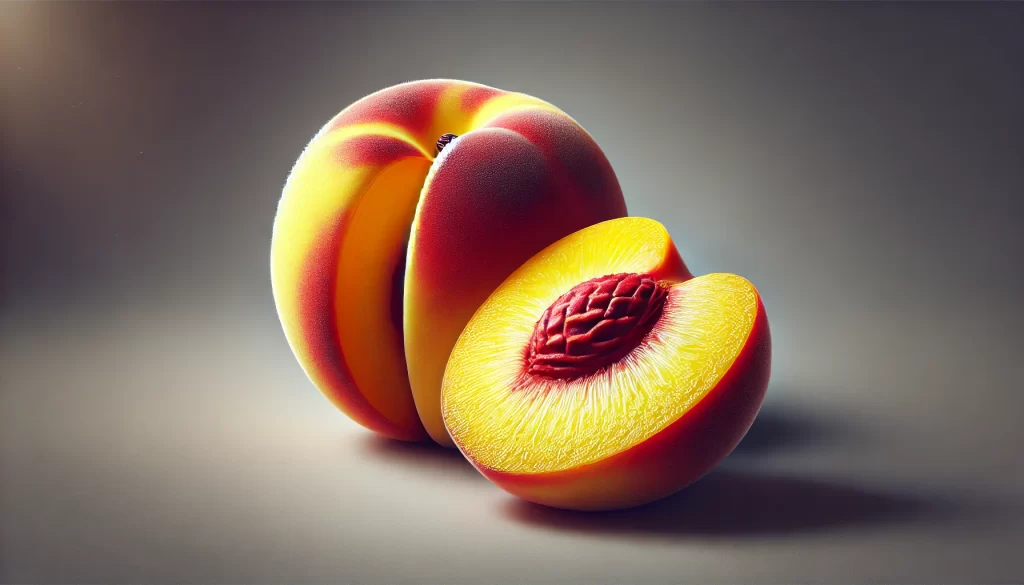
Nectarine: The Smoothness of a Natural Mutation
Smooth Skin and Genetic Science
The nectarine is a natural variation of the peach that is distinguished by its smooth skin, lacking the fuzz that characterizes other varieties. This mutation is due to a recessive allele that inhibits the formation of trichomes (the tiny hairs on peach skin). Nectarines, which can have either yellow or white flesh, are known for their sweet and juicy flavor but with a crisper texture than other peaches. Their intensified flavor profile is due to the concentration of sugars and acids, making them particularly appealing to fresh fruit lovers.
Ideal for:
- Fresh consumption
- Salads
- Cold desserts
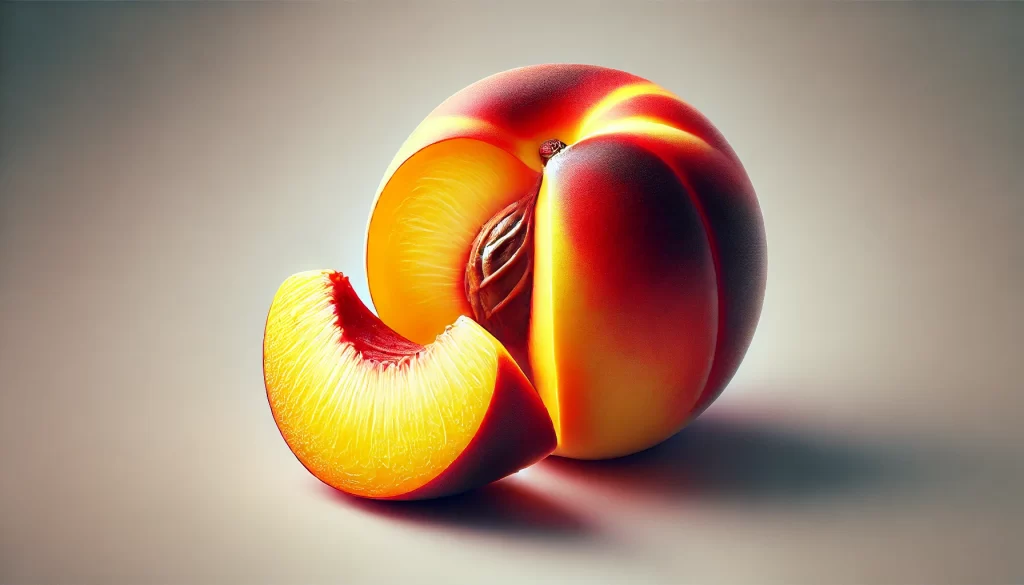
Saturn Peach: A Flattened Delight with History
Science and Curiosities of the Flat Peach
The Saturn peach, also known as a flat peach or “peach donut,” is notable for its flattened shape and intensely sweet flavor. This variety, which has its origins in China, has gained popularity for its ease of consumption and low acid content, making it extremely sweet. The flattened shape of the Saturn peach is an adaptation that does not affect its nutritional value, and its flesh is known to be looser and easier to separate from the pit.
Ideal for:
- Fresh consumption
- Quick snacks
- Light desserts
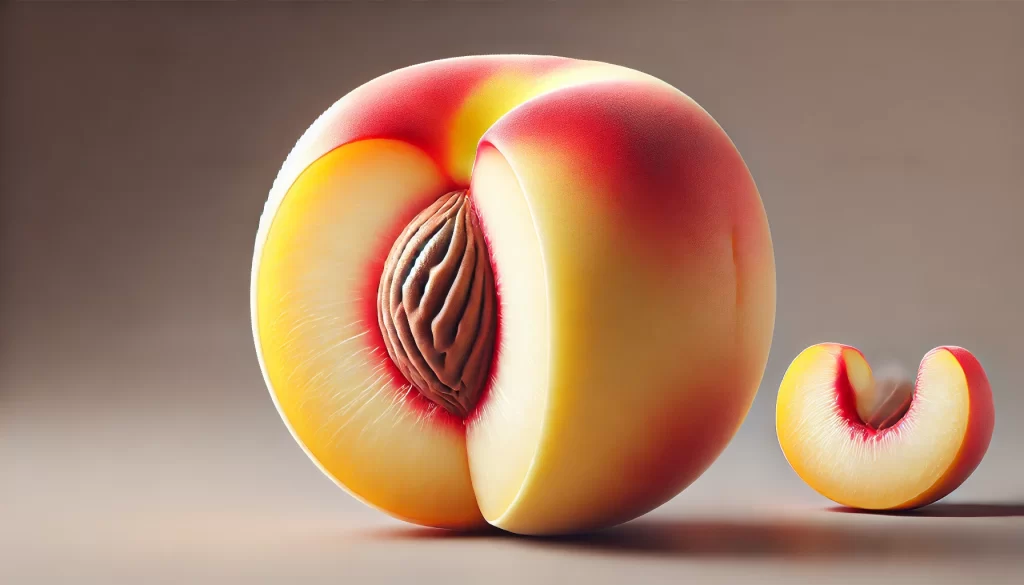
Vine Peach: The Tradition of the Vineyards
The Perfect Peach for Grape Harvesting
The vine peach is a lesser-known but highly valued variety in wine-growing regions. This peach is characterized by its late maturation, coinciding with the grape harvest, and its hardiness, making it ideal for vineyard cultivation. Its flesh is firm, and its flavor is a perfect balance of sweetness and acidity, making it suitable for both fresh consumption and canning. This peach has a tough skin and a high anthocyanin content, giving it a darker color and making it an excellent source of antioxidants.
Ideal for:
- Fresh consumption
- Preserves
- Wine pairing
Each peach variety has its own charm, from the classic flavor of the yellow-flesh peach to the delicacy of the white flesh and the firmness of the clingstone. Knowing these varieties not only enriches our palate but also allows us to appreciate the science behind every bite. Dare to explore and discover your favorite type of peach, and enjoy the diversity that this wonderful fruit has to offer.
 AgronoBlog – Agriculture Blog
AgronoBlog – Agriculture Blog